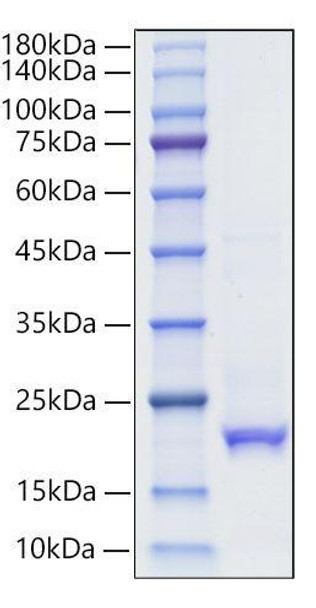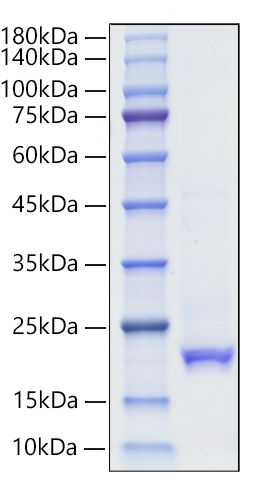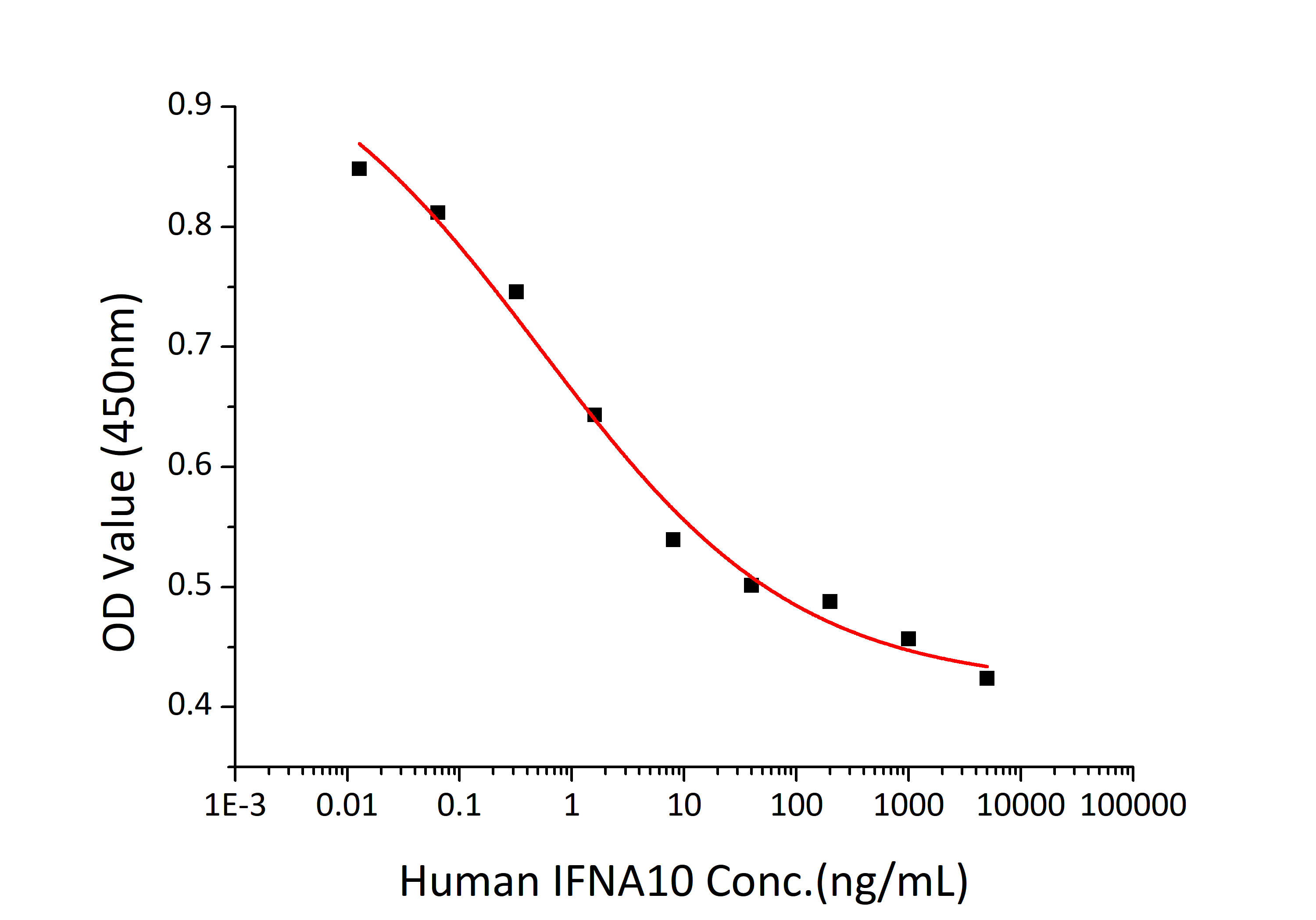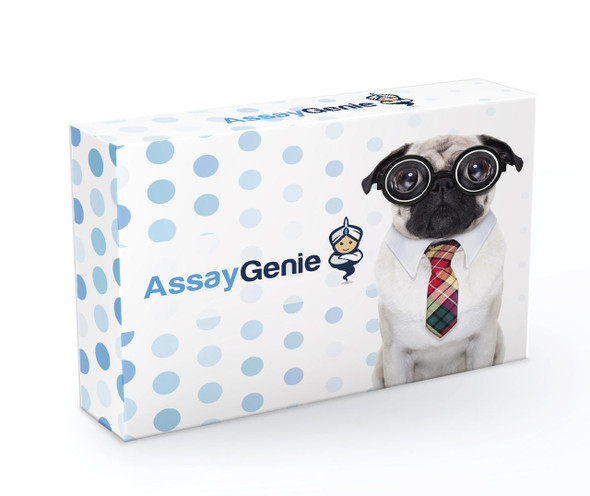Description
Recombinant Human IFN-alpha 10 Protein
The Recombinant Human IFN-alpha 10 Protein is a biologically active recombinant protein that plays a significant role in various cellular processes and signaling pathways in human biology. This protein is widely employed in immunological research, cell biology studies, protein-protein interaction analyses, and therapeutic development, providing researchers with a reliable tool for investigating IFN-alpha 10 function and its implications in health and disease.
This product (SKU: RPCB1414) is produced using HEK293 cells and features a C-His tag for convenient detection and purification. The protein exhibits a calculated molecular weight of 20.25 kDa with an observed molecular weight of 20-25 kDa under denaturing conditions, achieving ≥ 90% as determined by SDS-PAGE.. Functional bioactivity has been validated through rigorous quality control assays, confirming its suitability for demanding research applications.
Key Features
| High Purity by Affinity Chromatography | |
| Mammalian & Bacterial Expression Systems | |
| High lot-to-lot consistency via strict QC |
| Product Name: | Recombinant Human IFN-alpha 10 Protein |
| SKU: | RPCB1414 |
| Size: | 10 μg , 20 μg , 50 μg , 100 μg |
| Reactivity: | Human |
| Synonyms: | IFNA10, IFN-alpha 10, IFNalpha C, IFN-alpha C, IFN-alpha-10, IFN-alphaC, interferon alpha-10, Interferon alpha-6L, Interferon alpha-C, interferon, alpha 10, LeIF C, MGC119878, MGC119879 |
| Tag: | C-His |
| Expression Host: | HEK293 cells |
| Calculated MW: | 20.25 kDa |
| Observed MW: | 20-25 kDa |
| Gene ID: | 3446 |
| Protein Description: | High quality, high purity and low endotoxin recombinant Recombinant Human IFN-alpha 10 Protein (RPCB1414), tested reactivity in HEK293 cells and has been validated in SDS-PAGE.100% guaranteed. |
| Endotoxin: | < 1 EU/μg of the protein by LAL method. |
| Purity: | ≥ 90% as determined by SDS-PAGE. |
| Formulation: | Lyophilized from a 0.22 μm filtered solution of PBS, pH 7.4. |
| Bio-Activity: | Measured in a cell cytotoxicity assay using TF-1 cells. The ED 50 for this effect is 0.26‑1.04 ng/mL, corresponding to a specific activity of 9.62×10 5 ~3.85×10 6 units/mg. |
| Reconstitution: | Centrifuge the vial before opening. Reconstitute to a concentration of 0.1-0.5 mg/mL in sterile distilled water. Avoid vortex or vigorously pipetting the protein. For long term storage, it is recommended to add a carrier protein or stablizer (e.g. 0.1% BSA, 5% HSA, 10% FBS or 5% Trehalose), and aliquot the reconstituted protein solution to minimize free-thaw cycles. |
| Storage: | Store at -20℃.Store the lyophilized protein at -20℃ to -80 ℃ up to 1 year from the date of receipt. After reconstitution, the protein solution is stable at -20℃ for 3 months, at 2-8℃ for up to 1 week. |
Interferons (IFN) are a family of cytokines with potent anti viral, antiproliferative and immunomodulatory properties, classified based on their binding specificity to cell surface receptors. Human IFNA2 was originally cloned in the early ‘80s and now more than a dozen closely related IFN alpha subtypes have been identified in both the human and mouse genome, each sharing about 80% amino acid (aa) sequence homology. Structurally, type I IFNs belong to the class of five helical bundle cytokines, with the IFNA subtypes containing 2 conserved disulfide bonds. Mature human IFNA10 shares 61% aa sequence identity with mouse IFNA7. The type I IFNs bind to the interferon alpha receptor (IFNAR), which consists of two subunits: IFNAR1 (alpha -subunit) and IFNAR2 (beta -subunit). Individual IFNA subtypes are known to display unique efficacies to viral protection, and IFNA10 has been shown to be a strong inducer of IFN-stimulated genes and anti viral protection. Additionally, IFNA10 exhibits weak anti viral effects against SARS-CoV-2.








